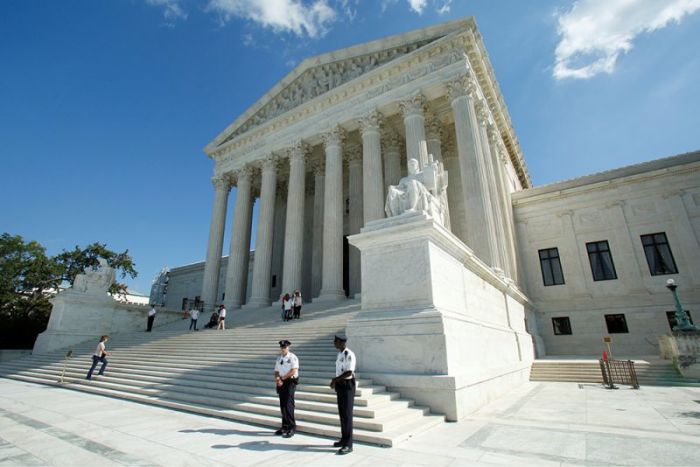Supreme Court Ruling Protecting Pregnancy Centers Dismantles 'Conversion Therapy' Bans, Lawyer Says

The U.S. Supreme Court ruling in favor of pro-life crisis pregnancy centers should encourage those resisting bans on counseling services for individuals dealing with unwanted sexual struggles and gender confusion, according a family advocate's analysis of Clarence Thomas' opinion.
Last week, the high court, in NIFLA v. Becerra, handed down a narrow 5-4 win to a network of pregnancy centers in California who objected to a state law compelling them to advertise abortion services. But the text of the majority opinion effectively overturns restrictions on therapists who assist people with unwanted same-sex attraction and gender confusion, which is particularly relevant given bans on what is often derisively referred to as "conversion therapy," argues Curtis Schube, legal counsel for the Pennsylvania Family Institute.
"For too long laws in some jurisdictions have mischaracterized and banned these important services," Schube said in a email to The Christian Post on Friday.
"The NIFLA decision is encouraging to those who wish to address their same-sex attraction because they can now seek the compassionate and professional help that they desire. Likewise, professional counselors who wish to provide services to same-sex attracted patients should no longer have to fear professional discipline."
While most jurisdictions that presently have statutes on the books which bar sexual orientation change efforts (SOCE) have exceptions for churches — the laws address licensed counselors in a clinical setting — with the recent approval of AB 2943 in California state Assembly, the Supreme Court ruling in NIFLA stands to bolster the rights of Christians in other areas, something few commentators have noted when speaking of this decision.
Justice Thomas's opinion provides ample evidence to be encouraged, Schube explains in a guest post on the Ruth Institute's blog Thursday.
Thomas cited two cases in his opinion, Pickup v. Brown and King v. Governors of New Jersey, in which courts ruled that SOCE laws were constitutional and that the speech of the counselor is not fully protected under the First Amendment since the speech is classified as professional "conduct."
Yet in the case of the crisis pregnancy centers, the federal appellate court had justified the requirement for centers advertise abortion as "professional speech," just like the other courts had done for SOCE laws in the Pickup and King cases.
"The Supreme Court opinion overturning the Ninth Circuit's NIFLA opinion, specifically identified Pickup and King as examples of 'professional speech' protected by the First Amendment," Schube explained.
Justice Thomas continued that certain appeals courts "have recognized 'professional speech' as a separate category of speech that is subject to different rules," yet "speech is not unprotected merely because it is uttered by 'professionals.'"
Such a statement marks a profound shift in jurisprudence regarding proposed therapy bans, Schube stressed, adding that Thomas "seized the opportunity to provide protections to many other professions" in the NIFLA ruling.
"Professionals might have a host of good-faith disagreements, both with each other and with the government, on many topics in their respective fields," Thomas wrote.
Schube explained that the justice also identifies "doctors and nurses who disagree on the prevailing opinions on assisted suicide or medical marijuana as examples of good faith disagreements. So too are lawyers and marriage counselors who disagree on prenuptial agreements and divorces, and bankers and accountants who disagree on how to commit money to savings or tax reform."
"One would have to conclude that Justice Thomas' intent is to protect all professionals from being regulated on matters of good faith disagreement," he said.
Not only are the pregnancy centers guaranteed their free speech rights, this high court opinion "has created broad protections for a significant number of Americans who hold professional licenses."
"In doing so, the Court also reopened the seemingly settled question as to whether SOCE bans are constitutional. This is a welcome surprise from a case originally thought to be limited only to pregnancy centers," Schube concluded.




























